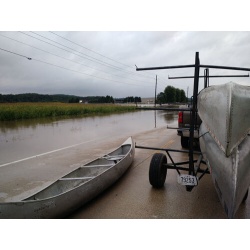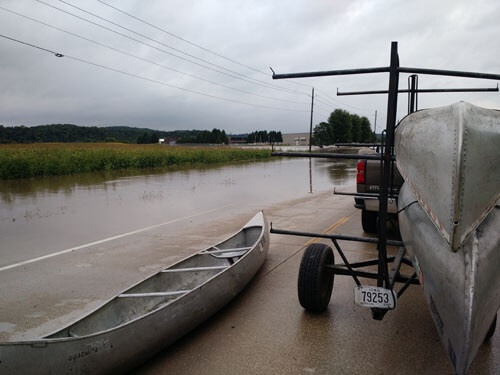
Funding for Iowa Flood Center might stay alive
"Murky" is not only a good word to describe the floodwaters that sometimes pass by Decorah, but it's a good word to describe the situation involving funding for the Iowa Flood Center at the University of Iowa.
The Iowa House and Senate's Appropriations sub-committee on Education on Tuesday did vote to de-appropriate $1.5 million in funding for the Iowa Flood Center--a move Flood Center Director Larry Weber said would effectively kill the project.
That doesn't necessarily mean the Iowa Flood Center will lose its funding. State Senator Michael Breitbach tells decorahnews.com "there is an amendment that will continue funding through the General Fund." The Des Moines Register quotes State Representative Cecil Dolecheck, who co-chairs the education budget subcommittee, as saying discussions are ongoing with University of Iowa officials.
Larry Weber tells decorahnews.com he's getting "conflicting messages from the Capitol."
Meanwhile, Decorah City Administrator Chad Bird has weighed in on the issue, supporting the Iowa Flood Center and asking people to contact legislators to stress how important the Iowa Flood Center is for many of Iowa's cities and counties. Says Bird, "Loss of the expertise, monitoring and forecasting would be detrimental to our region's flood relief efforts."
Bird says specifically for Winneshiek County, the city of Decorah and the Upper Iowa Watershed Management Authority, "there are many water quality, flood mitigation and even water supply initiatives in the works that are dependent on information and staff support from the Iowa Flood Center. A key project for Decorah and Winneshiek County is the much anticipated FIRM mapping update project. Some of the data used during our mapping will come from FEMA and local staff would seek technical review and expertise from the Flood Center. The stream and river gauges used throughout the county are a vital link in our disaster monitoring and response with many local action steps initiated because of data on the gauges."
Site designed and maintained by Iroc Web Design Services©.
Your Small Business Web Design Solutions.™


